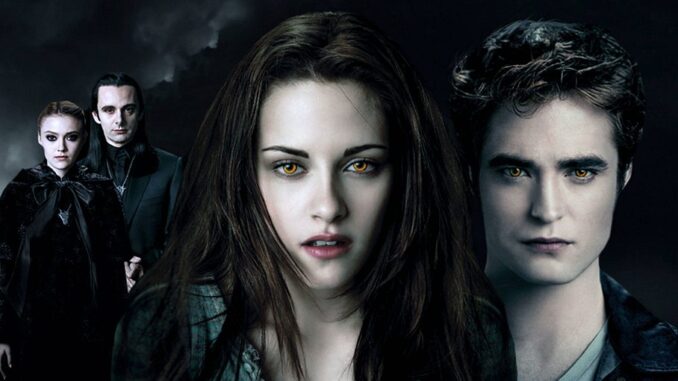
Robert Pattinson: Are You Still Stuck on ‘Twilight Ruined Vampire Genre’? It’s Been Nearly 20 Years.
The year is 2008. A young, relatively unknown British actor with a mop of artfully disheveled hair and a perpetually brooding gaze is thrust into the global spotlight as Edward Cullen, the sparkling, lovelorn vampire of Twilight. The film becomes a phenomenon, a cultural earthquake that divides audiences, ignites fanatical devotion, and sparks an unending debate about the very nature of vampires. And at the epicenter of this storm was Robert Pattinson, who, with characteristic dry wit and a hint of genuine artistic frustration, famously expressed his discomfort with the role, even going so far as to imply that Twilight had, well, rather put a damper on the venerable vampire genre.
Nearly two decades later, as the opalescent skin of Edward Cullen has faded into the sepia tones of pop culture history, and Robert Pattinson has cemented his status as a bona fide A-list actor – an indie darling turned Caped Crusader – one can’t help but wonder: is the ghost of the “ruined vampire genre” still haunting his artistic conscience? Or has the passage of time, with its softening edges and clarifying perspective, finally allowed him to see the full, complex tapestry of Twilight‘s legacy?
One could easily empathize with Pattinson’s initial disdain. Before Twilight, vampires were creatures of the night: primal, terrifying, seductive, and often tragically monstrous. They were Dracula in his castle, Lestat gliding through New Orleans, Buffy staking the soulless, or Blade tearing through the neon-drenched underworld. Their allure lay in their danger, their eternal struggle with humanity and their own dark nature. Then came Edward Cullen, a morally conflicted, celibate high-schooler who sparkled in the sunlight and obsessed over a mortal girl. To many purists, Pattinson included, it felt like a betrayal, a defanging of a beloved mythical beast, a substitution of gothic horror for chaste teenage romance.
Pattinson, an actor clearly drawn to the raw, the gritty, the psychologically complex (as evidenced by his post-Twilight filmography like Good Time, The Lighthouse, and Cosmopolis), found himself in a gilded cage. He was the reluctant pin-up for millions, trapped in a role that, for all its commercial success, felt artistically limiting and, perhaps, a little embarrassing. His early, oft-quoted remarks about Edward, the franchise, and the general state of things reeked of an actor desperately trying to reclaim his artistic integrity, to signal to the world that he was more than just a glittery heartthrob. And for a young artist trying to define himself, the idea that his breakthrough role had “ruined” a genre he likely admired must have been a heavy cross to bear.
But time, as they say, changes everything. The world that greeted Twilight with either fervent adoration or sneering derision has evolved. The outrage has largely subsided, the think pieces have been written, and the initial shock has worn off. We can now look at Twilight with a clearer lens, acknowledging its monumental cultural impact – it introduced a new generation to fantasy, romance, and even the concept of vampires, albeit in a highly particularized form. It wasn’t just a film; it was a global phenomenon that proved the commercial viability of YA adaptations and redefined the landscape of mainstream entertainment.
Did it “ruin” the vampire genre? The evidence suggests otherwise. Far from being a death knell, Twilight was more of a seismic shift, an evolutionary fork in the road. It certainly saturated the market with its brand of romanticized, often angsty vampires, and for a time, other vampire stories struggled to escape its long, sparkling shadow. But the genre, a hydra-headed beast with roots deeply embedded in folklore and literature, proved far more resilient.
In the nearly two decades since, the vampire genre has continued to thrive, diversify, and innovate. We’ve seen the darkly comedic genius of What We Do in the Shadows, which simultaneously parodies and celebrates vampire tropes. We’ve witnessed the existential horror and theological depth of Midnight Mass. We’ve experienced the stark, poetic beauty of A Girl Walks Home Alone at Night, which reinvents the vampire as a feminist avenger. Even within mainstream cinema, we’ve seen attempts to reclaim the monster, to explore new facets of immortality and bloodlust, from the brutal efficiency of Vampires vs. The Bronx to the more traditional horror of The Last Voyage of the Demeter.
Robert Pattinson himself is no longer defined by Edward Cullen. He’s the intense, gravelly-voiced Batman, the manic lighthouse keeper, the tortured astronaut. He has achieved the very artistic credibility he seemed to crave. With this level of success and the freedom to choose his roles, one might imagine him looking back at Twilight not with resentment, but perhaps with a wry smile, an acknowledgement of its essential role in his journey. It was the launching pad, the commercial beast that allowed him the luxury of chasing his more unconventional artistic pursuits.
Perhaps, if we could share a quiet drink with Pattinson now, he might muse that Twilight didn’t ruin the vampire genre, but merely offered a distinct, albeit controversial, interpretation. It proved the genre’s incredible elasticity, its capacity to be stretched, twisted, and reimagined for different audiences and sensibilities. It was a mirror reflecting a particular cultural moment, a snapshot of teenage angst and forbidden love, dressed up in the trappings of the undead.
So, Mr. Pattinson, if you’re still carrying that weighty sentiment, it might be time to lay it down. The vampire genre is alive and well, pulsating with diverse blood types and storytelling possibilities, richer perhaps for the very detour Twilight represented. And you, dear actor, are far, far beyond the shadow of a glittering heartthrob. You’ve carved your own path, leaving a trail of powerful performances that speak far louder than any lingering “ruined genre” lament. It’s been nearly 20 years, after all; time to let the past, sparkling or not, rest in peace.
